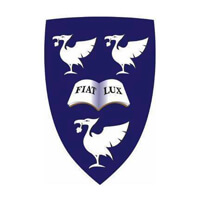fees waived
Avionic Systems, BEng (Hons), with industry placement
The University of Liverpool, United Kingdom
Subject ranking
UK / USNews 9th
UK / USNews 9th
UK / CUG 13th
Costs
food & rentS$16.8K / year
Entry requirements
Scholarships
Limited quantity
Information
Code
Intakes
Website (External)
Programmes
Information
Duration
2028
What stops an aircraft from falling out of the sky? The fundamental reason is due to the aerodynamic lift acting on the wings but, for modern aircraft, sophisticated electronics is another essential ingredient.Electronic systems associated with flight are known by the term ‘avionics’. Avionics covers the internal sensors and control systems within aircraft; from airborne communication and navigation systems to ‘stealth’ aircraft design and flight control systems.The avionics in most aircraft will be upgraded several times during the life of the airframe. This makes avionics one of the most important sectors in the aerospace industry and it is a major employer in the UK.This degree programme aims to prepare you to work in a variety of related disciplines: radar systems, GPS/inertial navigation systems, guidance and control, and avionics systems design.This programme is accredited by the Institution of Engineering and Technology (IET) on behalf of the Engineering Council for the purposes of fully meeting the academic requirement for registration as an Incorporated Engineer and partially meeting the academic requirement for registration as a Chartered Engineer.We have strong links with industry and a number of undergraduate projects have been generated from industrial projects undertaken by members of the Department. Examples include the development of infrared tracking algorithms for missile warning systems, antenna design for airborne communications and flight control systems for terrain avoidance in low-level flight.
A local representative of The University of Liverpool in Singapore is available online to assist you with enquiries about this course.

